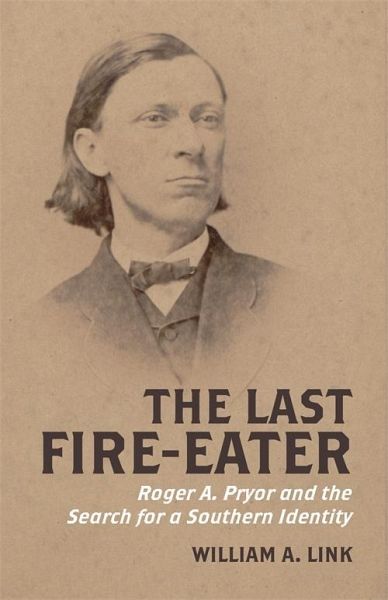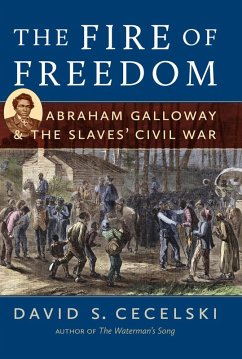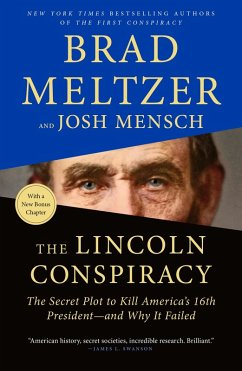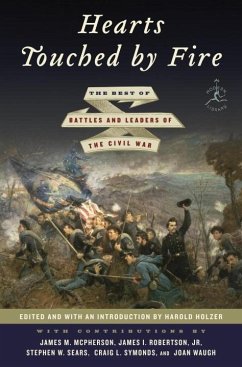
The Last Fire-Eater (eBook, ePUB)
Roger A. Pryor and the Search for a Southern Identity
Versandkostenfrei!
Sofort per Download lieferbar
15,95 €
inkl. MwSt.
Weitere Ausgaben:

PAYBACK Punkte
8 °P sammeln!
In The Last Fire-Eater, renowned historian of the American South William A. Link examines the life of Roger A. Pryor, a Virginia secessionist, Confederate general, and earnest proponent of postwar sectional reconciliation whose life involved a series of remarkable transformations. Pryor's journey, Link reveals, mirrored that of the South. At times, both proved puzzling and contradictory.Pryor recast himself during a crucial period in southern history between the 1850s and the close of the nineteenth century. An archetypical southern-rights advocate, Pryor became a skilled practitioner in the p...
In The Last Fire-Eater, renowned historian of the American South William A. Link examines the life of Roger A. Pryor, a Virginia secessionist, Confederate general, and earnest proponent of postwar sectional reconciliation whose life involved a series of remarkable transformations. Pryor's journey, Link reveals, mirrored that of the South. At times, both proved puzzling and contradictory.
Pryor recast himself during a crucial period in southern history between the 1850s and the close of the nineteenth century. An archetypical southern-rights advocate, Pryor became a skilled practitioner in the politics of honor. As a politician and newspaper editor, he engaged in duels and viewed the world through the cultural prism of southern honor, assuming a more militant and aggressive stance on slavery than most of his regional peers. Later, he served in the Confederate army during the Civil War, rising to the rank of brigadier general and seeing action across the Eastern Theater. Captured late in the conflict, Pryor soon after abandoned his fiery persona and renounced extremism. He then moved to New York City, where he emerged as a prominent lawyer and supporter of the sort of intersectional detente that stood as a central facet of what southern boosters labeled the "New South."
Dramatic change characterized Pryor's long life. Born in 1828, he died four months after the end of World War I. He witnessed fundamental shifts in the South that included the destruction of slavery, the defeat of the Confederacy, and the redefinition of manhood and honor among elite white men who relied less on violence to resolve personal grievances. With Pryor's lifetime of remakings as its focus, The Last Fire-Eater serves as a masterful history of transformation in the South.
Pryor recast himself during a crucial period in southern history between the 1850s and the close of the nineteenth century. An archetypical southern-rights advocate, Pryor became a skilled practitioner in the politics of honor. As a politician and newspaper editor, he engaged in duels and viewed the world through the cultural prism of southern honor, assuming a more militant and aggressive stance on slavery than most of his regional peers. Later, he served in the Confederate army during the Civil War, rising to the rank of brigadier general and seeing action across the Eastern Theater. Captured late in the conflict, Pryor soon after abandoned his fiery persona and renounced extremism. He then moved to New York City, where he emerged as a prominent lawyer and supporter of the sort of intersectional detente that stood as a central facet of what southern boosters labeled the "New South."
Dramatic change characterized Pryor's long life. Born in 1828, he died four months after the end of World War I. He witnessed fundamental shifts in the South that included the destruction of slavery, the defeat of the Confederacy, and the redefinition of manhood and honor among elite white men who relied less on violence to resolve personal grievances. With Pryor's lifetime of remakings as its focus, The Last Fire-Eater serves as a masterful history of transformation in the South.
Dieser Download kann aus rechtlichen Gründen nur mit Rechnungsadresse in A, D ausgeliefert werden.













